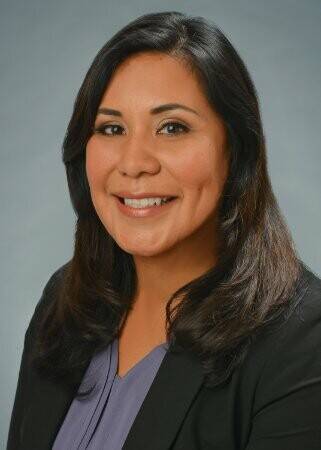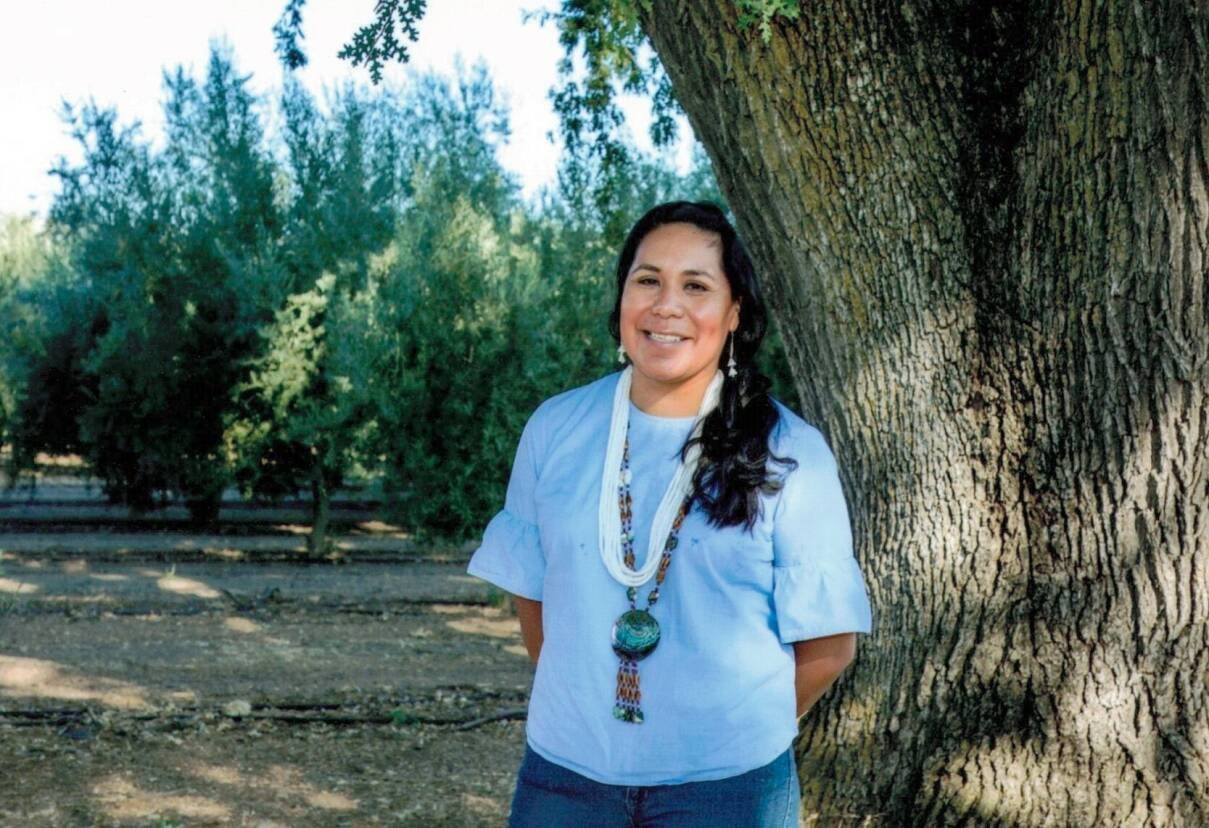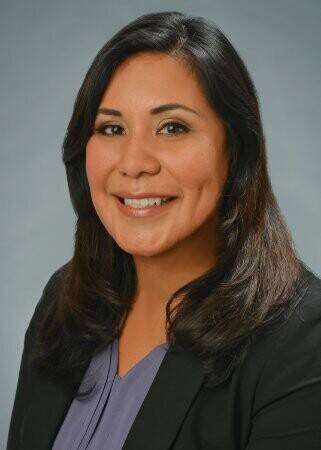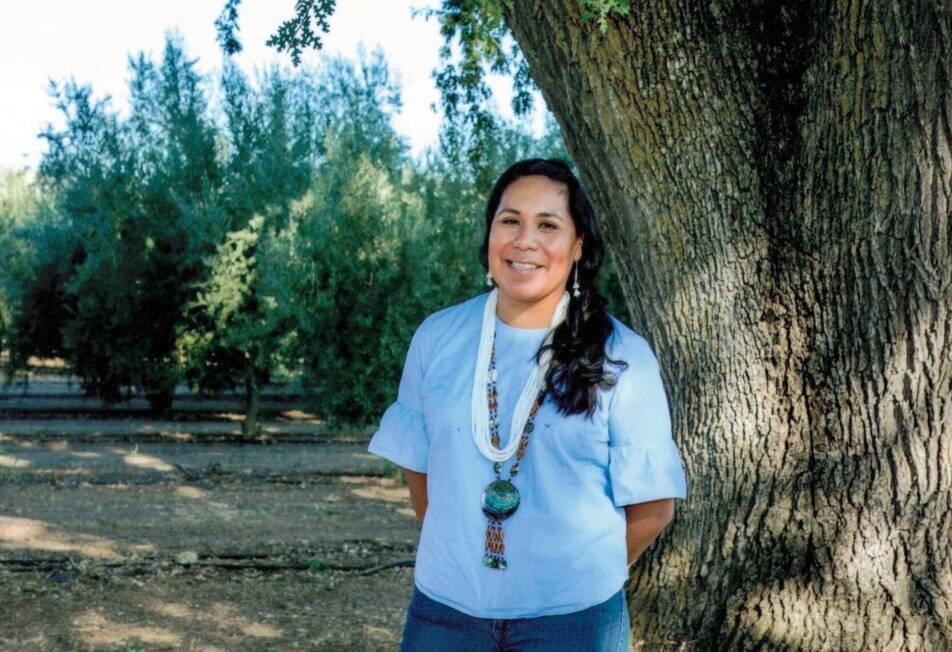“In an ideal world, indigenous communities would be thriving wherever they consider their homelands, and they would be able to speak their indigenous language. This country has so many micro climates. There are even more beyond our borders. I can guarantee there's an indigenous community that has adjusted and created cultural practices, behavior, society stewardship, that responds to that micro environment. And really, that's what we need. We don't need blanket policies that apply from one coast to the other that offer little nuance in how the different climates operate, much less how the different communities operate in them.”
"I think it’s important to create opportunities for interaction. We have over 500 projects in our Grantee Directory that connect to an indigenous community, or an indigenous led nonprofit around food. Connecting with those organizations is really important, because it allows opportunity for interaction."
“Another food project I work on is with the Swinomish community in the Pacific Northwest. They have been clam farmers for generations. Swinomish clam farmers have been taking care of the area and shorelines for generations. But they're not recognized as agriculturalists. They're not recognized as fishermen. And their form of clam farming is taking on a whole new meaning when it comes to regenerative agriculture. These people understood their natural environment and found ways to create food systems using the natural power of the sea and the land.”
4 min


“Finally, there’s the salmon advocacy that is happening along the Pacific coast. Generations and generations of salmon go up the river, they come down, and after they die they create the fertile lands that we now grow food on. Indigenous people are fighting for the continuation of the salmon migrations. But it's rarely seen or articulated that way. The way we frame food and our own nationhood’s history is one of ‘othering’. By doing so we create the mental and intellectual capacity to separate ourselves from certain groups of people. Results of this are exploitation and the enablement of people to move forward with so-called ‘progress’ with a clean conscience. When we think of tribal communities, or brown communities or black communities, and like mentally we start dismissing them, I think that's the moment that we need to stop and reframe our thinking. Our institutions are built on millions and millions of people thinking the same thing. Othering has led to a lot of degradation of our environment and people. It is the part of our society that is keeping us from seeing the solutions we need to see."
“I think I have the best job in the world because all I do is work with indigenous food projects all across the mainland United States, Alaska and Hawaii. Each one of them has their own unique positioning with distinctive issues. The profiles and the character of these projects are very different from what you see in other food companies, because they really center on like indigenous values and indigenous ideas about what food is and how we should be interacting with resources, and the environment.”
“Everyone knows about Standing Rock, but every indigenous community has this same story. I don't think there's one community that hasn't had to fight for their water or their land or their seeds or their people. In Standing Rock, they've had a long established food project where they work with elder, indigenous food keepers, people who know about Lakota, Dakota Nakota food systems, and they pair them up with young people. It's a system of passing down indigenous knowledge about the area.”
Indiginous people have been taking care of their environment for generations. But often they’re not recognized for their efforts or praised for their way of working in harmony with nature. A-dae Romero-Briones (Kiowa/Cochiti) is the Director of Programs - Native Food and Agricultural Program for First Nations Development Institute and the Co-Founder/Director of the California Tribal Fund. She works with indigenous food projects all over the United States.
Lisa Appels A-dae Romero-Briones Xiao Er Kong
Giving back credit to indiginous food systems
"Othering has led to a lot of degradation of our environment and people"
interview
“In an ideal world, indigenous communities would be thriving wherever they consider their homelands, and they would be able to speak their indigenous language. This country has so many micro climates. There are even more beyond our borders. I can guarantee there's an indigenous community that has adjusted and created cultural practices, behavior, society stewardship, that responds to that micro environment. And really, that's what we need. We don't need blanket policies that apply from one coast to the other that offer little nuance in how the different climates operate, much less how the different communities operate in them.”
"I think it’s important to create opportunities for interaction. We have over 500 projects in our Grantee Directory that connect to an indigenous community, or an indigenous led nonprofit around food. Connecting with those organizations is really important, because it allows opportunity for interaction."
“Another food project I work on is with the Swinomish community in the Pacific Northwest. They have been clam farmers for generations. Swinomish clam farmers have been taking care of the area and shorelines for generations. But they're not recognized as agriculturalists. They're not recognized as fishermen. And their form of clam farming is taking on a whole new meaning when it comes to regenerative agriculture. These people understood their natural environment and found ways to create food systems using the natural power of the sea and the land.”

“Finally, there’s the salmon advocacy that is happening along the Pacific coast. Generations and generations of salmon go up the river, they come down, and after they die they create the fertile lands that we now grow food on. Indigenous people are fighting for the continuation of the salmon migrations. But it's rarely seen or articulated that way. The way we frame food and our own nationhood’s history is one of ‘othering’. By doing so we create the mental and intellectual capacity to separate ourselves from certain groups of people. Results of this are exploitation and the enablement of people to move forward with so-called ‘progress’ with a clean conscience. When we think of tribal communities, or brown communities or black communities, and like mentally we start dismissing them, I think that's the moment that we need to stop and reframe our thinking. Our institutions are built on millions and millions of people thinking the same thing. Othering has led to a lot of degradation of our environment and people. It is the part of our society that is keeping us from seeing the solutions we need to see."

Giving back credit to indiginous food systems
"Othering has led to a lot of degradation of our environment and people"
“I think I have the best job in the world because all I do is work with indigenous food projects all across the mainland United States, Alaska and Hawaii. Each one of them has their own unique positioning with distinctive issues. The profiles and the character of these projects are very different from what you see in other food companies, because they really center on like indigenous values and indigenous ideas about what food is and how we should be interacting with resources, and the environment.”
“Everyone knows about Standing Rock, but every indigenous community has this same story. I don't think there's one community that hasn't had to fight for their water or their land or their seeds or their people. In Standing Rock, they've had a long established food project where they work with elder, indigenous food keepers, people who know about Lakota, Dakota Nakota food systems, and they pair them up with young people. It's a system of passing down indigenous knowledge about the area.”
Indiginous people have been taking care of their environment for generations. But often they’re not recognized for their efforts or praised for their way of working in harmony with nature. A-dae Romero-Briones (Kiowa/Cochiti) is the Director of Programs - Native Food and Agricultural Program for First Nations Development Institute and the Co-Founder/Director of the California Tribal Fund. She works with indigenous food projects all over the United States.
Lisa Appels A-dae Romero-Briones Xiao Er Kong
4 min









